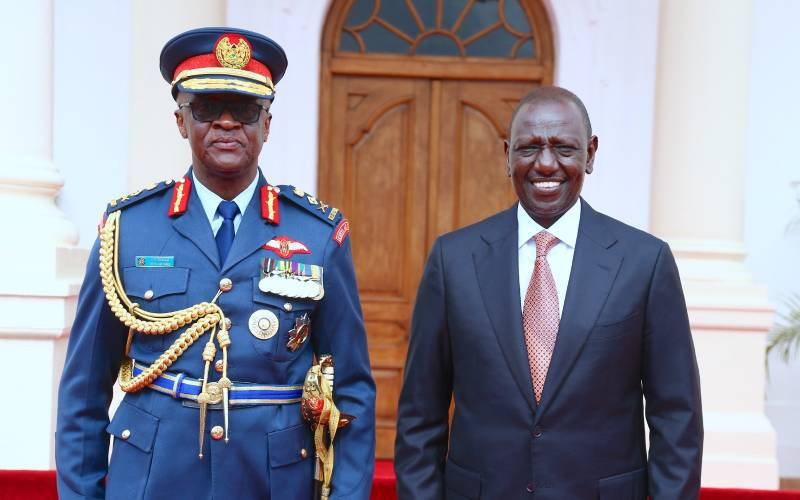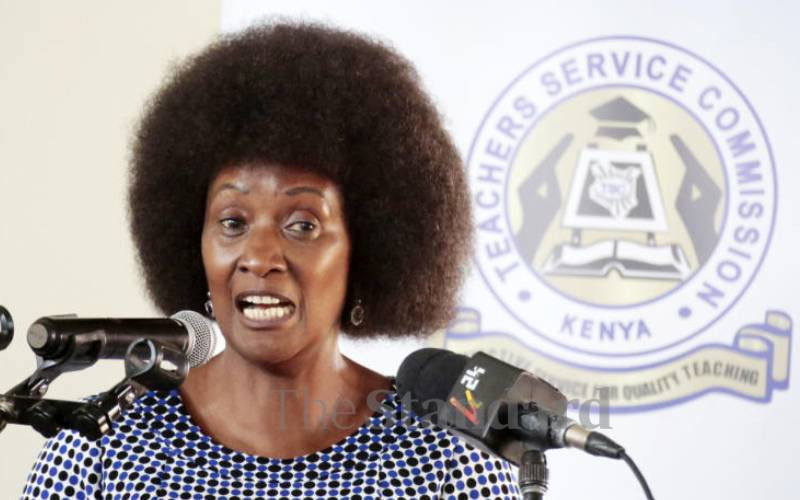The question on whether it is morally or spiritually right for Christians to take part in military service has lingered in the minds of many people who grow with passion for military service, but because of lack of proper spiritual and moral analysis on Biblical perspective of war, many young people raised in Christian homes finally give in to keep-safe pressure from parents and guardians. Hence, most are prevented from pursuing their passion, and forced to hustle elsewhere. No wonder we have myriad challenges in the military with cases of soldiers absconding duty rampant. Sheer lack of passion!
Historically, opinions are divided on whether to serve as non-combatants or men of arms. Battlefield stories have been narrated about pastors and priests working in the military who undergo gun-handling lessons at least for self-protection, due to nature of working conditions.
Moral Dimension
But whether working as a serviceman or a combatant, the question remains because the food you prepare as a cook contributes to the energy of the gunman. Your efforts urge him on. In one way or the other, you help the gunman shoot down the enemy. This still has a morality and spirituality bearing on the whole issue. If it is the enemy’s life one fears taking, then you are still morally responsible by feeding the gunman. It is like a Christian buying chang’aa for drunkards.
Biblical perspective
God chose a tribe to show the world His Will for humanity: Israel. Many theists believe that God’s dealings with Israel set precedence to all humanity on how to relate with him. Even after being identified by God as a holy nation, set apart for Gods service, Israel still had to fight own physical battles. The most striking part of the battles was that it involved Israel as a nation and God giving the commands to human soldiers. Most of the times, God told the Kings when to go for battle. A number of times they lost when they didn’t listen to God. A number of battles were won without physical fight. God aided their victory by scaring away their enemies, or making them fight against themselves!
Forced Military Enlistment
In early Centuries young men were forced to take up military service as part of showing their patriotism for country. However, we find that others refused citing religious implications. William the Silent, founder of the Monarchy of Netherlands granted the Dutch Mennonite believers recognition to conscientious objection in 1575. Instead, they gave monetary payment.
In Britain, formal legislation to exempt objectors from fighting was first granted in mid-18th Century following problems with attempting to force Quakers into military service. In 1757, when the first attempt was made to establish professional national military reserve, a clause exempting Quakers from military service was infused in the Militia Ballot Act.
In the United States, conscientious objection was permitted from the country’s founding, although regulation was left to individual states prior to the introduction of conscription.
But just what is conscientious objection (CO)? According to Wikipedia, it is the claiming of the right of refusal to perform military service on grounds of freedom of thought, conscience and or religion. In the historical wars fought the world over- the wars that shaped the current national, political and ideological boundaries in Europe and Asia, conscientious objectors were executed, imprisoned or otherwise penalized when their beliefs conflicted with the legal system of government.
War Crime Trials
The war crime trials after World War II, invoking Nuremberg Principles, placed moral responsibility on soldiers. Nuremberg Principle IV states”…the fact that a person acted pursuant to an order of his Government or of a superior does not relieve him from responsibility under international law, provided a moral choice was in fact possible to him.” This Principle later led to more people citing more personal reasons for objecting military service. In 1948, human rights violation complaints from objectors led to The Article 18 of the Universal Declaration of Human Rights in the United Nations General Assembly which reads”…everyone has the right to freedom of thought, conscience and religion or belief; this right includes freedom to change his religion or belief ...to manifest his religion or belief in teaching, practice, worship and observance.”
In all these, religious beliefs were a starting point for many objecting to military service.
Conscientious Objection Today.
In many countries today such as Kenya, admission to a military academy is done through meritocracy where of the applicants; those most qualified both mentally and physically are prioritized. In a way, conscientious objection is taken care of because of the non-forceful way of enlistment. However, when belief changes in the course of military service or training, there are fears that with the military knowledge so far gathered, one cannot live a civilian lifestyle. This case is challenging, with Martial courts full of cases of abandonment of duty by trained military persons. They are considered public safety threats due to their expertise in handling weapons. A little bit justified but sounds homophobic, isn’t it?
Stay informed. Subscribe to our newsletter
Old Testament Battles
Some Christian believers hold that the church should be neutral in worldly conflicts and often cite the latter portion of Isaiah 2.4 which states,”…neither shall they learn war anymore.” Since the American Civil war, Seventh-Day Adventists were known to be non-combatants. They prefer to work in hospitals or to give medical care in the frontline rather than combat roles. The church has held the non-combatant position.
But looking back at the history of early Theocratic Israel, a different picture comes to view. The rise of Gideon to military limelight against the Midianites and Amalekites is such a dramatic scene worth picking out. God instructed Gideon to prepare an army to fight against the oppressive Amalekites and Midianites. Gideon chose thirty-two thousand men of war. This number was tactfully reduced to three hundred, lest Israel boast they gained victory by their numbers. Through the whole process, it is seen that none of them tried exempting himself from military duty on religious or conscience grounds. Again they did not cease being military men, but retreated to the camps, only fearing current battle. God’s direct involvement in the filtering out process, however, remains most prominent.
Lessons to Christians Today.
We would expect God to protect His chosen people and avert any possibility of shedding enemy blood. That is, if it was a spiritual or moral problem, being God. Or, that He would demand that the soldiers repent of murder and bloodshed. Clearly, there is no such place in the Bible where the soldiers, by order from God through the prophets or by guilty conscience repent for defending territory, or shedding blood when on duty defending nation.
Moreover, many Christians believe that it is the same God throughout the Bible, supported by a declaration in Malachi 3.6, ’...for I am The LORD, I change not…’
New Testament
In the NT Book of Hebrews Chapter 11 where Heroes of Faith are commended, the men who led Israel to war stand prominent. The men who killed enemy soldiers stand tall in faith. Abraham pursued and slaughtered enemy soldiers who abducted his nephew Lot and looted his belongings. Mentioned among others are Gideon, Barak, Samson and David, praised for subduing kingdoms, escaping the edge of the sword, out of weakness made strong, waxing valiant in fight, turning to flight the army of aliens, all related to military honors.
Conclusion
Dear Christians, God declares that He doesn’t change. If He required the choicest men from tribes of Israel to go to war, He would require us to do the same. We should only do the right thing in our call. When the young David killed Goliath and defeated Philistines, people rejoiced. When King David killed Uriah, the nation suffered a plague consequently. For this wanton bloodshed (specifically for Uriah’s case) God denied David the opportunity to build Him the temple. The Bible is not famous for glossing over the flaws of its heroes. Do the right thing. Invoking our rights to conscientious objection not only renders us jobless and weaklings, but also spiritual cowards ‘fearful and afraid’ and unwilling (but sadly, most able) to be used of God to defend our people and nation.
We owe our right to free expression, even of religious views to men and women (also children of God) who sacrifice their lives daily for our safety. Taking up arms to fight against a person who is a threat to national security is not evil, if the rules are followed. Unless we imply that our safety defenders are evil through our inflexible anti-combatant stance. God recognizes government, and more a stable government. It is our God-given responsibility as dwellers and sojourners on Earth to participate in national departments of military service. As Benjamin Franklin said, ‘those who give up essential liberty (right) to purchase a little temporary safety, deserves neither liberty nor safety.’
 The Standard Group Plc is a
multi-media organization with investments in media platforms spanning newspaper
print operations, television, radio broadcasting, digital and online services. The
Standard Group is recognized as a leading multi-media house in Kenya with a key
influence in matters of national and international interest.
The Standard Group Plc is a
multi-media organization with investments in media platforms spanning newspaper
print operations, television, radio broadcasting, digital and online services. The
Standard Group is recognized as a leading multi-media house in Kenya with a key
influence in matters of national and international interest.
 The Standard Group Plc is a
multi-media organization with investments in media platforms spanning newspaper
print operations, television, radio broadcasting, digital and online services. The
Standard Group is recognized as a leading multi-media house in Kenya with a key
influence in matters of national and international interest.
The Standard Group Plc is a
multi-media organization with investments in media platforms spanning newspaper
print operations, television, radio broadcasting, digital and online services. The
Standard Group is recognized as a leading multi-media house in Kenya with a key
influence in matters of national and international interest.







